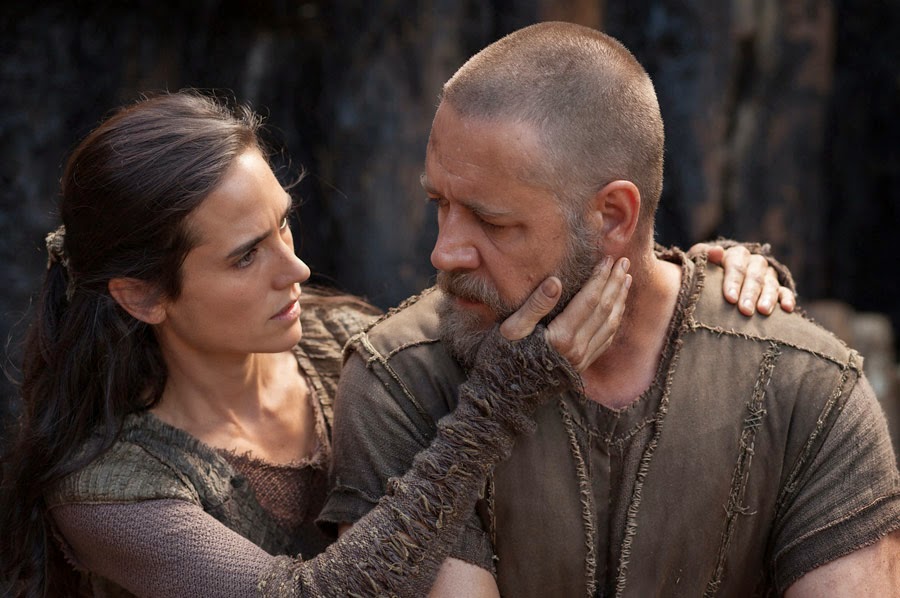Rock Monsters, A Flood, and a New Beginning
"By faith Noah, when warned about things not yet seen, in holy fear built an ark to save his family. By his faith he condemned the world and became heir of the righteousness that is in keeping with faith." — Hebrews 11:7
This is a big year for Christians and films. Already we've seen "Son of God." On Wednesday, the account of Todd Burpo and his son, Colton, comes to the big screen in "Heaven Is For Real." In December Christian Bale suits up as Moses in Ridley Scott's "Exodus." And, of course, a few weeks ago Russell Crowe offered his take on Noah in Darren Aronofsky's "Noah."
In terms of details, the Bible leaves a lot to the imagination when it comes to Noah. His tale, one of the most famous to believers and non-believers alike, takes up just three chapters. It boils down to humanity being corrupt, God asking Noah to step out in faith, a flood washing the Earth clean, and creation beginning anew.
In bringing the story to the big screen for a two hour movie, you'd expect some liberties to be taken. After all, the Bible doesn't even give the name of Noah's wife, or the wives of his three sons. It doesn't talk much about the specifics of the world, or even the process by which Noah answered God's call and built the ark.
I have never read the supplemental Jewish texts, though I know Aronofsky and his co-writer, Ari Handel, turned to the book of Enoch and Maccabees to round out the story. And perhaps those accounts provide more biographical information. Certainly they are the root of one of the more surprising aspects of the film — the fallen angels turned rock monsters known as Watchers.
In all, "Noah" was frustrating as an account of a Biblical story and as a film. But for the purposes of this post, I'll only tackle the former. Below are things I thought worked, and things I found troubling.
What worked:
* Noah stepped out in faith. To me, the most important part of the Noah story is that a man followed God's instructions. It probably sounded incredible to Noah that he was to build a boat, to collect a sample of every creature on the Earth, and prepare for God to wipe out His corrupted creation. But Noah did just that. And in this film, Noah does the same.
* The depiction of creation, and the emphasis on the fallen nature of man. This film spends a lot of time looking at the fall in the Garden, and how it continues to corrupt us generations later. That seems true to the spirit of the Biblical narrative, and was one of the more affirming parts of the film.
What Didn't Work:
* The Watchers. This is a part of ancillary texts, I understand, but it was just weird. The giant rock monsters helped build and protect the Ark before returning to Heaven. It felt like a weird way of explaining the unexplainable — how Noah could have built the Ark.
* Story elements. Aspects of the story — including Noah's strange personality, his fixation on man needing to end, and who ended up on the Ark — didn't jive with the Biblical account, and didn't feel in keeping with the spirit of the Biblical narrative.
In the end, I'm glad that filmmakers are interested in telling Biblical stories, but they need to be more faithful than "Noah." I didn't hate the movie, but it felt like it suffered from some of the same filmmaking pitfalls as other Christian films while also being unBiblical. I don't know what someone outside the faith would take away from this film, but my guess is they'd be kind of confused.




Comments
Post a Comment